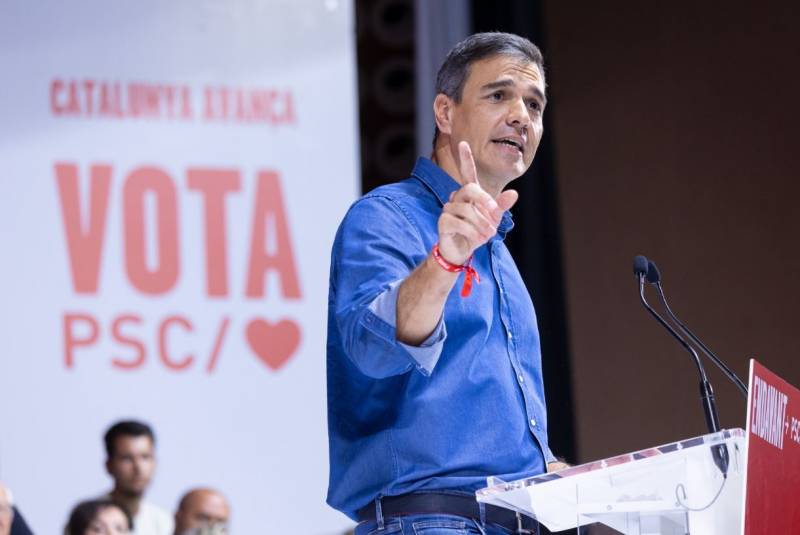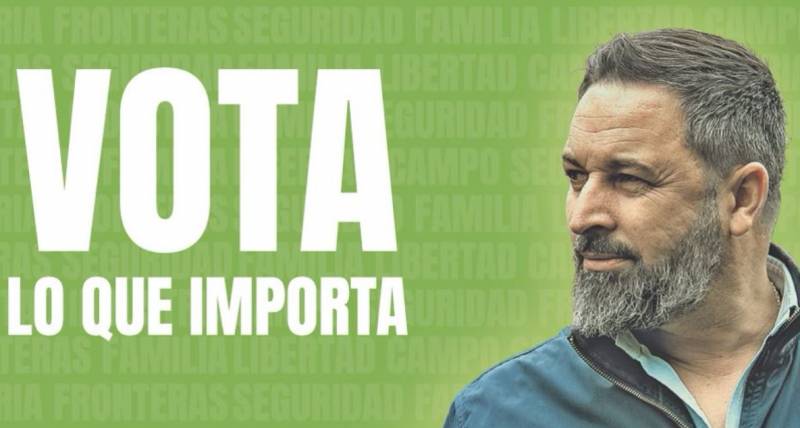article_detail
Who will win the Spanish general election next Sunday?
There is an election in Spain this Sunday – here’s what is at stake and what could happen

Spain heads to the polls again this weekend, on Sunday July 23, after President Pedro Sánchez called a snap election at the end of May following a resounding defeat in the municipal and and regional elections.
Unlike the municipal and regional relections, only Spanish citizens can vote in general elections, so it will be up to the Spanish public to decide this weekend on the future of their country for the next four years.
So who are the main players in the Spanish general elections 2023, what could happen next weekend and what could it mean for the future of the country?
Pedro Sánchez (PSOE)

Image: PSOE
The current President of Spain is up for re-election as the leader of his governing party, the socialist PSOE.
With a series of popular fiscal measures designed to combat the cost-of-living crisis amongst Spaniards and several key pieces of legislation under his belt such as paid menstrual leave and the Animal Welfare Law, Sánchez stands a chance of holding on to power.
However, after five years of having him as President many Spanish people are tired of seeing his face and blame him for many problems such as the energy crisis and rising mortgage interest rates.
Alberto Núñez Feijóo (PP)

Image: PP
Leader of the centre-right opposition party PP, Alberto Núñez Feijóo, is Sánchez’s main rival for top spot.
PP stands for Popular Party, and the conservatives do indeed have a large and loyal following in Spain. The last government before Sánchez’s was the PP-led majority government headed by President Mariano Rajoy from 2011-2018.
Yolanda Díaz (Sumar)

Image: Sumar
From the ashes of the Unidos Podemos comes the latest alliance left-wing of parties in Spain, Sumar, headed by current Second Vice President, Yolanda Díaz.
Sumar’s main goal in this election will be to attain enough votes to be able to act as minority coalition partner in a government with the PSOE.
Santiago Abascal (VOX)

Image: VOX
VOX is a political party on the far right that has gained traction in recent years and did incredibly well for a small, relatively new party in the recent local elections.
If VOX manage to get enough votes to form a coalition government with the PP, which has shown itself willing to pact with the extreme rightwing at the municipal and regional level, then it will be the first time Spain has had a government of the extreme right since the fall of the fascist dictator Franco in 1975 and the introduction of democracy
Who is going to win?
Although the PSOE got a good trouncing in the May municipal and regional elections, their defeat in this general election it is far from a foregone conclusion. Polls show that the left has rallied in response to the threat of having a government that includes VOX, a party that is widely seen as racist and reactionary.
Extreme rightwing governments have been cropping up more frequently around Europe of late, and these elections in Spain this weekend will be key to deciding whether Spain joins the likes of Italy or stands as a bastion against the rise of the far right.
That said, Feijóo is still the favourite to win. Whichever way it goes, though, neither the PSOE nor the PP are forecast to get enough votes to govern alone, meaning that Spain could be in for another coalition government.
In essence, because of Spain’s increasingly fractured political landscape and the rise of smaller parties to challenge the PP and PSOE in recent years, any vote for the moderate PSOE will also be a vote for the extreme left and any vote for the moderate PP will also be a vote for the extreme right.
In terms of what this will mean for the future of Spain, a leftwing alliance would probably mean a continuation of the mass spending of public money on social projects that we have seen from the PSOE and Podemos in the last couple of years. A rightwing coalition government would be more likely to focus on cutting back what it sees as indiscriminate public spending and introducing economic measures aimed at boosting Spain’s economy in Europe and on the global stage.
While a PP-VOX coalition is the most likely outcome of Sunday’s elections, there is also a third option – that none of the parties can come to an agreement to create the required majority to govern and that fresh elections will be called. This is not as outlandish as it sounds; Spain had no fewer than four general elections between December 2015 and November 2019 before finally settling on a government.
Loading
Sign up for the Spanish News Today Editors Roundup Weekly Bulletin and get an email with all the week’s news straight to your inbox
Special offer: Subscribe now for 25% off (36.95 euros for 48 Bulletins)
OR
you can sign up to our FREE weekly roundup!
Read some of our recent bulletins:
Discount Special Offer subscription:
36.95€ for 48 Editor’s Weekly News Roundup bulletins!
Please CLICK THE BUTTON to subscribe.
(List price 3 months 12 Bulletins)
Read more stories from around Spain:
Contact Spanish News Today: Editorial 966 260 896 /
Office 968 018 268





























